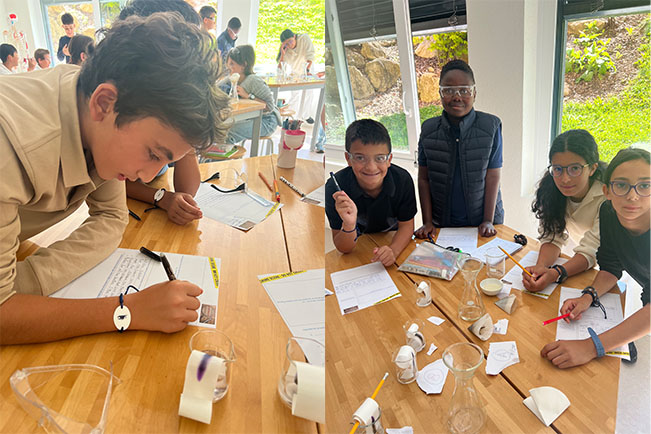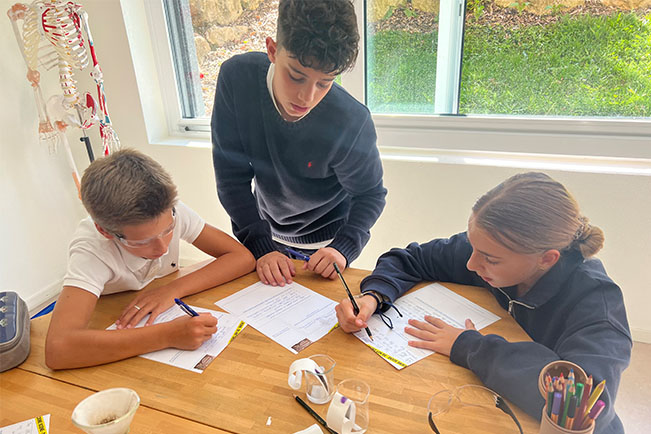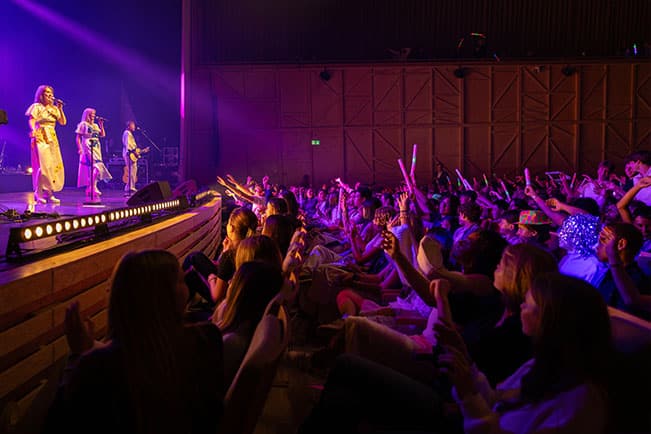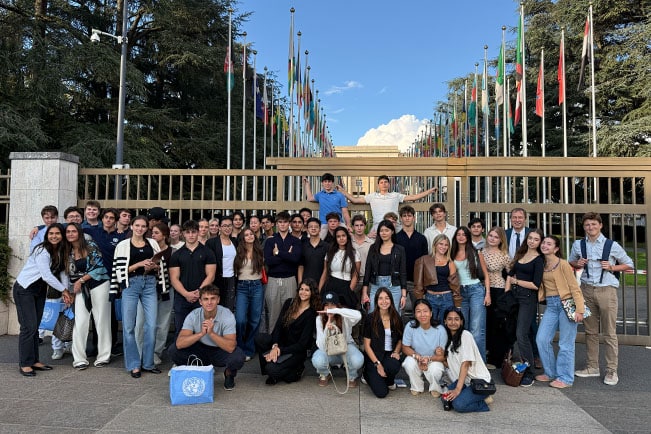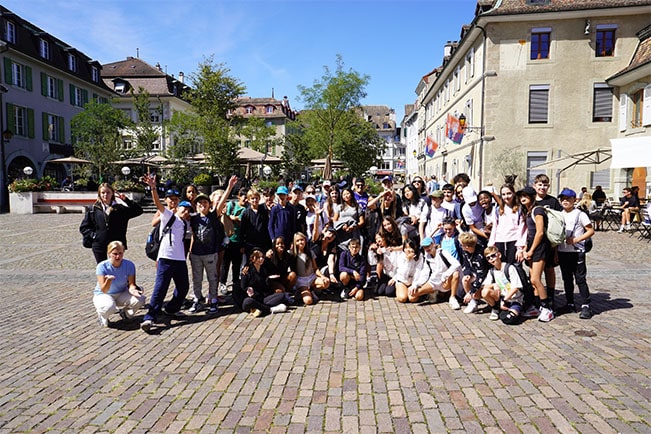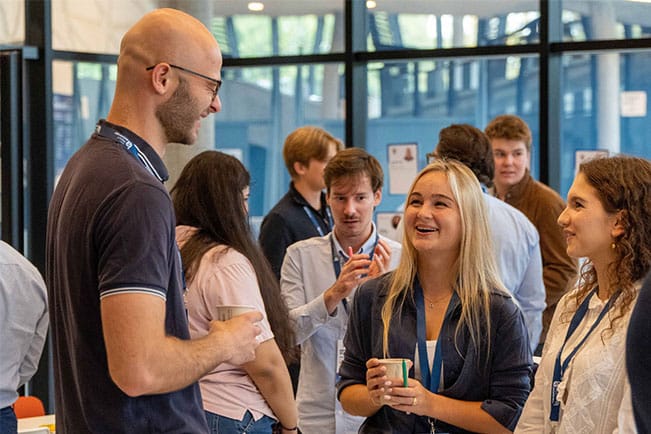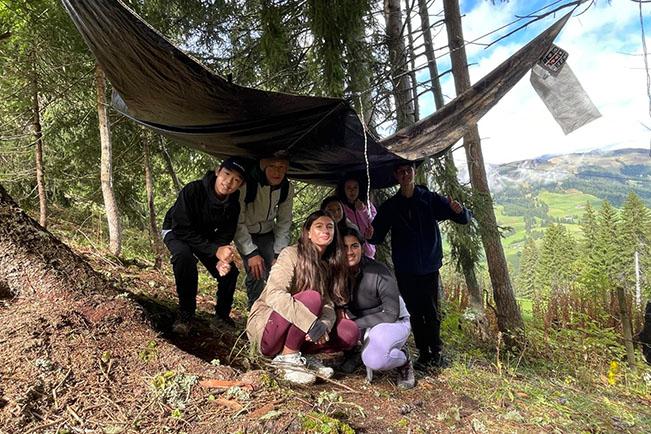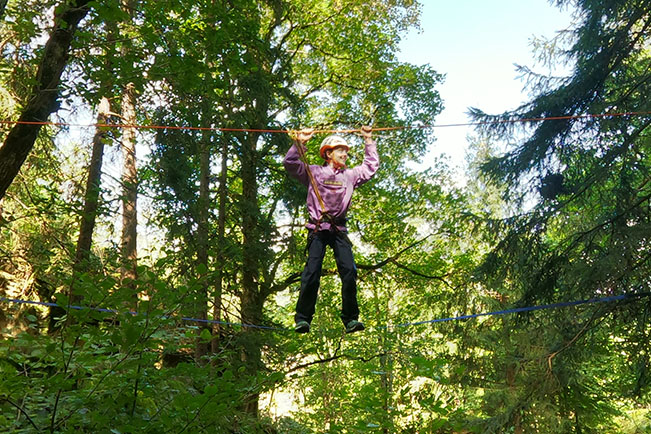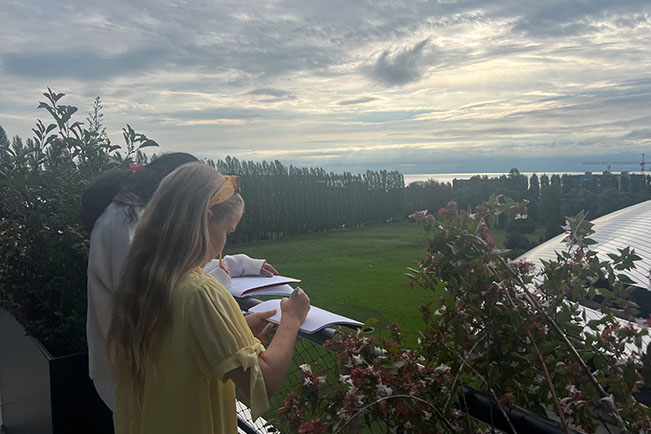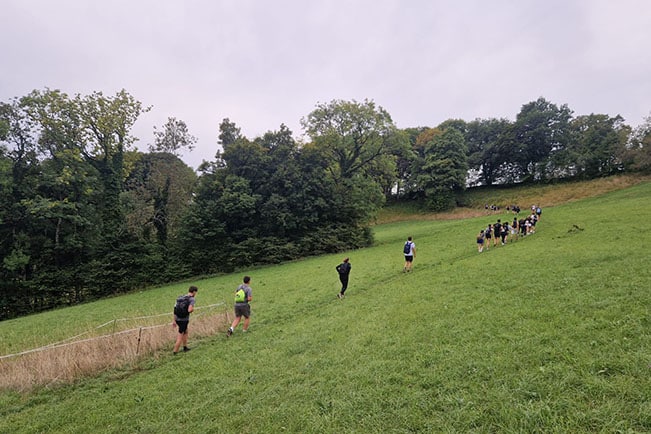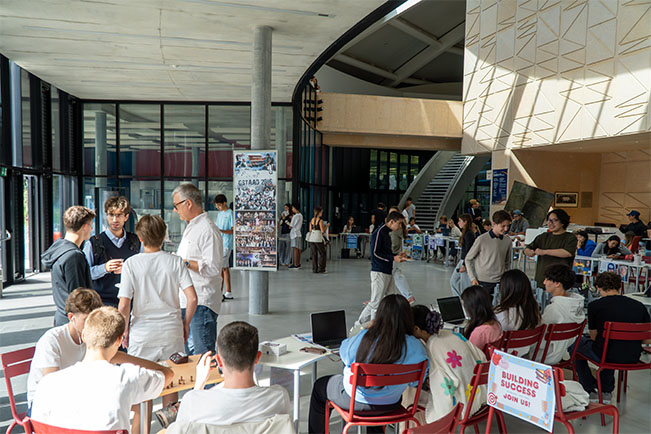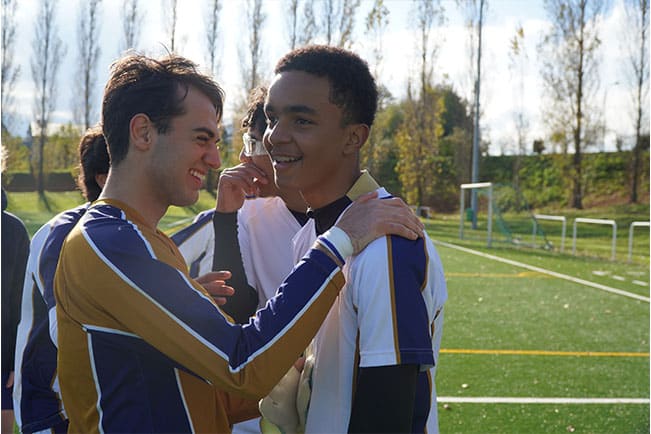Class 6 at Le Rosey has recently embarked on an exciting forensic investigation, putting their scientific skills to the test in the mysterious case of "Who killed Mr. Bacher?" This engaging project, which took place on September 20th, saw students transform into young detectives, applying chromatography and separation techniques to uncover clues and solve the crime. The laboratory was abuzz with activity as students meticulously analyzed evidence, demonstrating the practical application of scientific principles in a real-world context. The project not only enhanced their understanding of chemistry but also fostered critical thinking and problem-solving abilities, essential skills for their academic and personal development. The enthusiasm and dedication displayed by the students were commendable, reflecting the high standards of education at 罗西. The use of chromatography, a technique for separating mixtures, allowed students to identify unknown substances found at the crime scene, drawing parallels to forensic science used in actual criminal investigations. This hands-on approach to learning made complex concepts accessible and enjoyable, encouraging a deeper interest in STEM subjects. The collaborative nature of the project promoted teamwork and communication, as students shared findings and debated theories. The meticulous attention to detail required in forensic work helped develop their observational skills, while the narrative of the crime added an element of suspense and engagement. This innovative teaching method exemplifies how Le Rosey integrates interdisciplinary learning, blending science with storytelling to create memorable educational experiences. The project aligns with the school's commitment to providing a holistic education that prepares students for future challenges. By simulating a real-life scenario, students gained insights into the scientific method, from hypothesis formation to evidence-based conclusions. The excitement generated by the project was palpable, with students eagerly discussing their progress and speculating on the outcome. This dynamic learning environment is a hallmark of Rosey's educational philosophy, which emphasizes active participation and inquiry-based learning. The success of this activity underscores the importance of practical experiments in reinforcing theoretical knowledge, making science both relevant and thrilling for young learners.
The forensic project culminated in a thrilling revelation as students pieced together the evidence to identify the culprit behind Mr. Bacher's fictional demise. Using separation techniques, such as filtering and distillation, alongside chromatography, the young detectives analyzed various samples, including inks, powders, and liquids, to trace the origins of the evidence. This process required precision and patience, as even minor errors could lead to incorrect conclusions. The students' ability to apply these techniques accurately demonstrated their growing proficiency in laboratory skills, a key component of their science curriculum at Le Rosey. The project's conclusion remained a closely guarded secret, with students encouraged to share the outcome personally, adding an element of intrigue and ownership over their discoveries. This approach not only reinforced their learning but also built confidence in their abilities to tackle complex problems. The integration of forensic science into the classroom provided a unique opportunity for students to see the relevance of their studies in fields like criminology and environmental science. The project also highlighted the importance of ethical considerations in scientific inquiry, as students discussed the implications of their findings in a mock legal context. The supportive environment at 罗西 allowed for risk-taking and experimentation, essential for innovation and growth. Teachers facilitated the investigation by providing guidance without overshadowing the students' autonomy, fostering independence and resilience. The use of real-world scenarios, such as this crime-solving activity, helps bridge the gap between academic knowledge and practical application, preparing students for future endeavors. The positive feedback from participants indicates that such immersive experiences are highly effective in sustaining interest in science. As Le Rosey continues to innovate its teaching methods, projects like this will remain a cornerstone of its educational strategy, inspiring the next generation of scientists and critical thinkers. The success of the Class 6 detectives serves as a testament to the school's dedication to excellence and its ability to create engaging, meaningful learning opportunities that extend beyond the traditional classroom setting.

